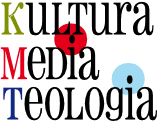
Uniwersytet Kardynała Stefana Wyszyńskiego
w Warszawie
ul. Dewajtis 5
01-815 Warszawa
kmt.uksw.edu.pl
kmt.uksw@gmail.com
ISSN 2081-8971
DOI 10.21697/kmt
Strona archiwalna
Na tej stronie znajdują się numery archiwalne kwartalnika od 1 (2010) do 53 (2023). Począwszy od numeru 54 kwartalnik znajduje się pod tym adresem.
Katarzyna Flader-Rzeszowska,
Theological Tropes in Piotr Cieplak's Theatre
Źródło: Katarzyna Flader-Rzeszowska, Theological Tropes in Piotr Cieplak's Theatre, "Kultura - Media - Teologia", 2015( 20) nr 1, s. 80-87.
DOI: 10.21697/kmt.20.5
In contemporary art, seemingly far from religious or faith-related affiliations, one can find many theological tropes: hidden values, symbols and motifs. Being focused on existential issues, touching upon the problems of suffering, dying, longing and love, theatre is still open to getting engaged in a dialogue with theology. Piotr Cieplak, one of the contemporary theatre directors that is worthy of greater attention, uses the language of “verging realities”, i.e. in his performances, he refers to the notions from the realm of theology. He is interested in such issues as faith, doubt, trust, hope and salvation. One of Cieplak’s inspirations at work is the thought of Tomasz Halik, an outstanding Czech theologian. His deliberations contained in the book Cierpliwość wobec Boga (Patience With God) can be a key to interpreting “Somkowy kapelusz” performance. This French farce dressed with T.S. Elliot’s poetry and read through the theological lens of Tomasz Halik becomes a story of patient waiting for an unnamed mystery. Here, Cieplak refers to the apophatic theology where God is described as the presence of Absence, a being impossible to embrace or label in any way. From this perspective, “Słomkowy kapelusz” is a story of a man who knows that he is an actor in the big theatre of the world, who believes, doubts, ask questions, longs but is unshakably waiting on the threshold of the mystery.
O autorach
Katarzyna Flader-Rzeszowska
ORCID: 0000-0002-4110-9788
Informacje
- CALL FOR PAPERS
- Za publikację w KMT 40 punktów
- Nowy podręcznik: Standardy profesjonalnego public relations
- Zmarła prof. dr hab. Anna Zeidler-Janiszewska
- Zmarł ks. profesor Tadeusz Zasępa
- Jesteśmy indeksowani przez CEJSH
- KMT na ICI Journals Master List 2014
- Kwartalnik "Kultura-Media-Teologia" indeksowany w ERIH PLUS!
- Jak zwiększyć liczbę cytowań – darmowy świetny poradnik!
- Zmarł ks. prof. dr hab. Antoni Lewek
Numery
- KMT53: Literatura - Media - Język
- KMT52: W kręgu zagadnień dziennikarskich
- KMT51: Liturgia w świecie wirtualnym
- KMT50: W kręgu zagadnień teologii, komunikowania i kultury medialnej
- KMT49: Komunikowanie i media
- KMT48: Współczesne paradygmaty komunikacji społecznej
- KMT47: We celebrate our 10th anniversary
- KMT46: W kręgu zagadnień polityki, komunikowania i mediów
- KMT45: Mądrość i komunikowanie we współczesności
- KMT44: Poszukiwanie dobra, prawdy i piękna
- KMT43: Konteksty tożsamości
- KMT42: Tożsamość kulturowa
- KMT41: Media w pandemii
- KMT40: Komunikacja i edukacja
- KMT39: Komunikacja w mediach, kulturze i teologii
- KMT38: Formy komunikacji
- KMT37: Wizerunek w mediach
- KMT36: Wartości w Sieci
- KMT35: Szczęście - koncepcje i wizualizacje
- KMT34: Szczęście - koncepcje i symbole
- KMT33: Kultura i media: przeobrażenia
- KMT32: Obrazy i symulakry
- KMT31: Uciekające Sacrum
- KMT30: Public relations w instytucjach non-profit
- KMT29: Hejt i trolling w Sieci
- KMT28: Media, rytuały i styl życia
- KMT27: Dyskursy interdycyplinarne
- KMT26: Absolut (nie)obecny
- KMT25: Hejting i trolling w Internecie
- KMT24: Komunikacja społeczno-kulturowa: między dialogiem a socjotechniką
- KMT23: Duchowość zakonna
- KMT22: Oblicza kina
- KMT21: Media, relacje, komunikacja
- KMT20: Teologia mediów
- KMT19: Edyta Stein - święta i feministka?
- KMT18: Reklama, marketing i prawo
- KMT17: Prawda czasu, prawda ekranu
- KMT16: Kultura i komunikacja
- KMT15: Media i edukacja
- KMT14: Dyskursy interdyscyplinarne
- KMT13: Manipulacja w mediach
- KMT12: Komunikacja na Soborze
- KMT11: Media wobec sacrum
- KMT10: Religia i media
- KMT9: Medialne artefakty
- KMT8: Przestrzenie kultury
- KMT7: Tożsamość i jej fundamenty
- KMT6: Media, kultura, pieniądze i...
- KMT5: Prawda w mediach?
- KMT4: Supermarket kultury
- KMT3: Medialna maskarada
- KMT2: Ks. prof. Antoni Lewek (1940-2010) - życie i dzieło
- KMT1: Progi (po)nowoczesności
Linki
- Uniwersytet Kardynała Stefana Wyszyńskiego w Warszawie
- Wydział Teologiczny UKSW
- Instytut Edukacji Medialnej i Dziennikarstwa
Inne informacje
Używamy plików cookies do mierzenia ruchu na stronie. Więcej na ten temat...